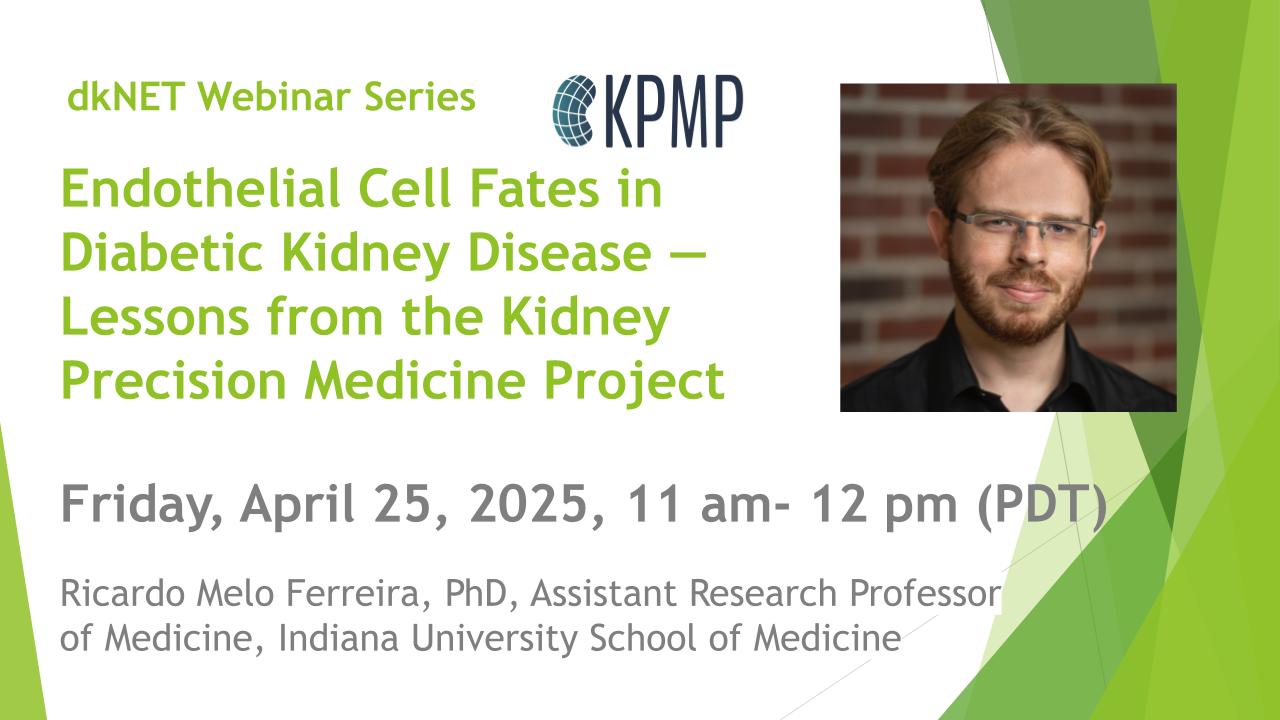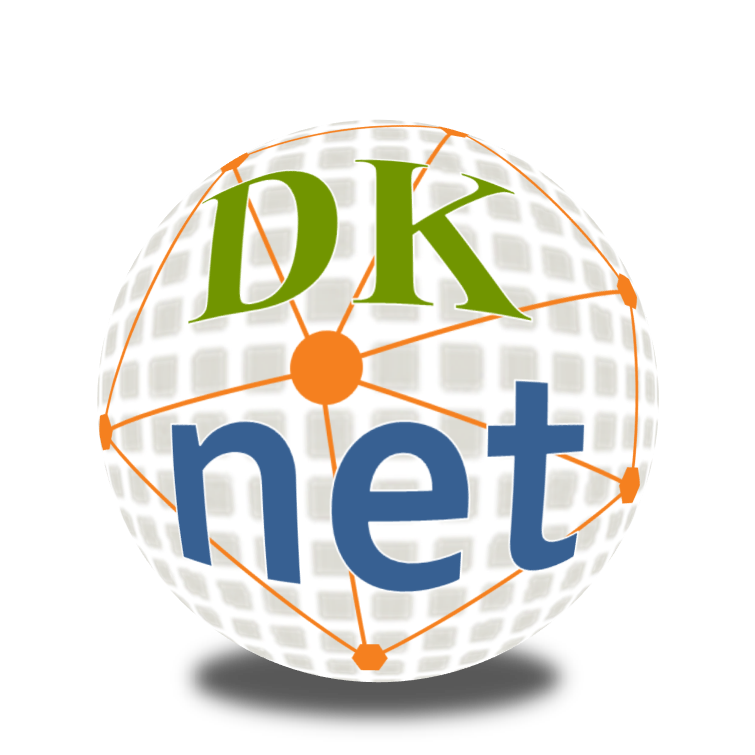Leaving Community
Are you sure you want to leave this community? Leaving the community will revoke any permissions you have been granted in this community.
dkNET community events and announcements in February, 2023
Dear dkNET Community,
dkNET provides updates on activities of interest to the NIDDK-supported community. You could keep up to date on these activities through our Twitter feed @dkNET_info, through our Community Calendar, or through dkNET e-mail list. If you have an event or funding opportunities you'd like to advertise, please contact us info_at_dknet.org.
Feb. 01-02, 2023
2023 NIH Grants Virtual Conference
Interact with NIH experts!
Engage and network with your peers!
Gather resources to use and share with colleagues!
More information: https://grants.nih.gov/learning-center/conference
Feb. 05-10, 2023
Mitochondria Biology Meeting
Location: Barga, 55051 Barga, Province of Lucca, Italy
More information: https://www.grc.org/mitochondria-in-health-and-disease-conference/2023/
Feb. 07, 2023
e-IDG Symposium Series: Understudied Protein Initiative
Speakers: Dr. Georg Kustatscher, PhD (The University of Edinburgh) and Dr. Juri Rappsilber, PhD (Technical University of Berlin and Wellcome Centre Cell Biology, Edinburgh)
More information: https://www.eventbrite.com/e/idg-symposium-series-feb-7-2023-registration-526808497397
Feb. 08, 2023
Diabetes Research Virtual Seminar Series: The Redox Network: Master Regulator of Metabolism
More information: https://diabetes-virtual-seminar.org/
Feb. 10, 2023
dkNET Webinar: Sample Size Shop
Presenters: Kylie K. Harrall, MS, Research Instructor, Lifecourse Epidemiology of Adiposity and Diabetes (LEAD) Center, University of Colorado Anschutz Medical Campus
Abstract
Planning a reproducible study requires selecting a sample size which will ensure appropriate statistical power. Free point-and-click software (Kreidler et al., Journal of Statistical Software, 2013, 10.18637/jss.v054.i10) makes it easy to select a sample size for clustered and longitudinal designs with linear mixed models. The software, a suite of training modules, and reference materials are freely available online (www.SampleSizeShop.org ). The software interface and training materials are aimed at biomedical scientists, included those funded by NIDDK. We give examples of study designs for which the software will compute power and sample size, including a study with clustering, a study with longitudinal repeated measures, and a study with multiple outcomes, where heterogeneity of response among subgroups is of interest.
The top 3 key questions that the Sample Size Shop can answer:
1. What free, online, point-and-click, wizard-style, NIH-funded, validated, published power and sample size software provides calculations for studies with clusters, longitudinal studies, and longitudinal studies with clusters?
2. Can GLIMMPSE (www.SampleSizeShop.org) compute power and sample size for randomized controlled clinical trials and observational studies funded by NIDDK?
3. Why use validated power and sample size software instead of writing simulations?
More information: https://dknet.org/about/blog/2577
Feb. 12, 2023
Gordon Research Conference Application Deadline: Examining the Intersection Between Systemic and Cellular Metabolism and Lifestyle Factors to Understand Health and Disease
Location: Lucca, 55100 Lucca, Province of Lucca, Italy
More information: https://www.grc.org/metabolomics-and-human-health-conference/2023/
Feb. 13, 2023
Keystone Symposia Scholarship and Abstract Deadline: Type 2 Diabetes: Understanding its Early Drivers and the Road to Therapeutics
Location: Palm Springs, CA, USA
More information: https://www.keystonesymposia.org/conferences/conference-listing/meeting?eventid=6803
Feb. 15, 2023
58th EASD Minkowski Prize awardee nomination deadline
The Minkowski Prize will be given in relation to research which has been carried out by an outstanding researcher normally residing in Europe. It is awarded for distinction manifested by publications which contribute to the advancement of knowledge concerning diabetes.
- Candidates must be an EASD Member and
- Candidates should be resident in Europe and
- Candidates should be younger than 45yrs in the year of nomination and/or
- their MD or PhD degree should have been obtained within the last 15 years
- Board Members of EASD are not eligible for nomination
More information: https://www.easd.org/prizes/minkowski.html
Feb. 15, 2023
19th IDS Congress Paris 2023 abstract deadline
Location: Paris, France
More information: https://www.idsparis2023.com/
Feb. 24, 2023
dkNET New Investigator Pilot Program in Bioinformatics Webinar Series
Women with gestational diabetes mellitus (GDM) are at high risk of developing glucose intolerance after delivery. In the long term, women with GDM have a nearly 10-fold higher risk of developing type 2 diabetes mellitus (T2D) than women without GDM. The American Diabetes Association (ADA) and the American College of Obstetrics and Gynecology (ACOG) recommend that women with GDM undergo a 75-g oral glucose tolerance test (OGTT) between four and 12 weeks postpartum, and periodically thereafter. However, postpartum glucose screening (PGS) rate is historically low despite of various interventions to improve such rate. We hypothesized that PGS rate is lower among postpartum homeless women than their housed counterparts, and that interventions to improve PGS rate among postpartum homeless women with GDM should be tailored to their unique circumstances. The Japanese Society of Diabetes and Pregnancy (JSDP) modified the method to perform PGS with random plasma glucose (RPG) and glycated hemoglobin (HbA1c), which are simple and less invasive, to reduce the risk of COVID-19 infection by shortening the time spent in the hospital. RPG or HbA1c test do not require fasting. Therefore, homeless women who utilized care for other reasons could have the test as PGS. Given the barriers faced by homeless individuals, we hypothesize that RPG and HbA1c at healthcare utilizations during the postpartum period could be one of the strategies to identify high-risk individuals early because 1] healthcare utilizations are an opportunity for healthcare providers and social workers to educate homeless patients on GDM and their insurance eligibility and coverage for the screening, and 2] the physical barriers to health care access, which are often cited as a reason for the low PGS rate, are removed.
This proposed study will use administrative data from five states (AZ, CO, NC, NJ, and OR), which collectively include 9.3% of the US female homeless population. Each state will provide detailed, linked, multi-level, anonymized data for postpartum homeless women from four sources: 1] Medicaid claims; 2] Homeless Management Information System (HMIS); 3] birth records; and 4] the American Hospital Association (AHA) database to obtain hospital characteristics. With data from 2013 to 2020, an estimated sample size of 24,000 homeless women who delivered babies and 3,290 postpartum homeless women with GDM will be included.
First, we will estimate rates of GDM and PGS among homeless women. Second, we will estimate the cost-effectiveness of performing RPG and HbA1c tests when they utilized care among homeless women with GDM who missed the PGS 12 weeks postpartum. For individuals who meet the criteria for glucose intolerance defined by JSDP, OGTT will be performed to confirm the results in order to begin intervention. The effect of lifetime horizon will be estimated using the quality-adjusted life-years (QALYs).
This project has the potential to change clinical practice by providing evidence that performing RPG and HbA1c at the healthcare utilization during the postpartum period will be a cost-effective strategy to improve health status among homeless with GDM.
More information: https://dknet.org/about/webinar
Feb. 24, 2023
PKD Connect 2023 Abstract Submission Deadline
Potential session themes and topics of interest include:
· Dietary Interventions and Metabolism
· Genetic Medicines in Cystic Diseases
· Role of the Cyst Microenvironment in ADPKD
· ARPKD and Cystic Diseases in Children
Research topics do not need to belong to these categories in order to be considered; we encourage you to submit any relevant research as long as you can speak to the translational capacity to a partially patient-facing audience.
Abstract deadline: February 24, 2023.
Location: Denver, CO, USA
More information: https://forms.office.com/pages/responsepage.aspx?id=D0RS8RRncke_iC7e42ehfR8QrClNaSdAuYjLZkUxpiZUNDRQSjRXVjBQU1Q3UTZHN1JTOTRCS1lPUC4u
Funding Opportunities Information and Deadlines in February 2023
Feb. 03, 2023
NIDDK Funding Opportunity Application Due: Notice of Special Interest: Administrative Supplements to Support Emerging Physician-Scientists to Develop Research Expertise in Diabetes, Endocrinology and Metabolic Diseases
The purpose of the NIDDK’s Division of Diabetes, Endocrinology and Metabolic Diseases (DDEMD) Administrative Supplement Program is to enable additional clinical perspectives to be brought to on-going research projects within the Division's mission and to enhance the research expertise of selected physicians.The program will provide supplementary funds to support advanced research opportunities for exceptional emerging physician-scientists (hereafter, "candidates") holding the MD or equivalent or MD/PhD degrees, and who are early in their research careers. The supplement is intended to allow candidates to expand their research experience to help them transition beyond their clinical training to the next stage of their research careers as physician-scientists.
More Information: https://dknet.org/about/dknetnews/2506
Feb. 03, 2023
NIH Funding Opportunity Application Due: Pilot Projects Enhancing Utility and Usage of Common Fund Data Sets
More information: https://dknet.org/about/dknetnews/2537
Feb. 05, 2023
NIH Funding Opportunity Application Due: Dissemination and Implementation Research in Health (R01 Clinical Trial Optional)
Letter of Intent Deadline: 30 days prior to the application due date
Application Deadline: June 15, 2022; October 5, 2022; February 05, 2023 (...)
More Information: https://grants.nih.gov/grants/guide/pa-files/par-22-105.html
Feb. 08, 2023
NIDDK Funding Opportunity Letter of Intent Due: Fostering Research With Additional Resources and Development (FORWARD) Urology Centers
More information: https://grants.nih.gov/grants/guide/rfa-files/rfa-dk-22-027.html
Feb. 15, 2023
NIDDK Funding Opportunity: Notice of Special Interest to Encourage Eligible NIH HEAL Initiative Awardees to Apply for PA-20-222: Research Supplements to Promote Diversity in Health-Related Research (Admin Supp - Clinical Trial Not Allowed) Application Due Date
More Information: https://grants.nih.gov/grants/guide/notice-files/not-ns-20-107.html
Feb. 17, 2023
Funding Opportunity Application Due: Diabetes-Docs: Physician-Scientist Career Development Program (DiabDocs)
Feb. 20, 2023
NIDDK Funding Opportunity Letter of Intent Due: New Investigator Gateway Awards for Collaborative T1D Research (R03 Clinical Trial Not Allowed)
Letter of Intent Deadline(s): May 1, 2022 and February 20, 2023
Application Deadline (New Application): June 1, 2022 and March 20, 2023
More Information: https://dknet.org/about/dknetnews/2379
Feb. 21, 2023
NIDDK Funding Opportunity Application Due: Integrated Physiology of Exocrine and Endocrine Pancreas in Type 1 Diabetes (R01 - Clinical Trial Not Allowed)
Letter of Intent Deadline: January 21, 2023
Application Deadline: February 21, 2023
More Information: https://dknet.org/about/dknetnews/2479
Feb. 28, 2023
NIDDK Funding Opportunity Application Due: Collaborative Research Using Biosamples from Type 1 Diabetes Clinical Studies (R01 - Clinical Trial Not Allowed)
Letter of Intent Deadline: January 28, 2022 ; September 26, 2023
Application Deadline: February 28, 2023 ; October 26, 2023
More Information: https://grants.nih.gov/grants/guide/rfa-files/rfa-dk-22-021.html
Feb. 28, 2023
NIDDK Funding Opportunity Application Due: Clinical, Behavioral, and Physiological Studies of Open- and Closed-loop Platforms: Toward Personalized, Fully Automated, Accessible Systems (R01 Clinical Trial Required)
Letter of Intent Deadline(s): January 28, 2023; September 26, 2023
Application Deadline(s): February 28, 2023; October 26, 2023
More Information: https://grants.nih.gov/grants/guide/rfa-files/rfa-dk-22-020.html
Feb. 28, 2023
NIDDK Funding Opportunity Letter of Intent Due: Human Islet Research Network (HIRN) Pancreas Knowledgebase Program (PanKbase) (U24 - Clinical Trial Not Allowed)
Feb. 28, 2023
NIDDK Funding Opportunity Application Due: NIDDK Investigator Award to Support Mentoring of Early Career Researchers from Diverse Backgrounds
More information: https://dknet.org/about/dknetnews/2538
Feb. 28, 2023
NIDDK Funding Opportunity Letter of Intent Due: NIDDK Information Network Coordinating Unit: dkNET-CU
More information: https://dknet.org/about/dknetnews/2527





